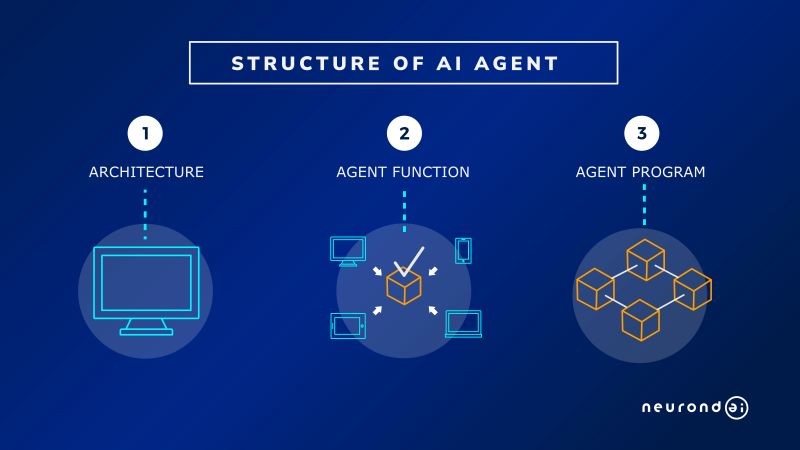Handy Reasons For Selecting An AI Agent Site For Business
Handy Reasons For Selecting An AI Agent Site For Business
Blog Article
Ai Agents Can Be Used To Automatize Financial Billing Processes.
AI agents can assist companies automatize their financial billing operations in a variety of ways.
1. Automated Invoice Generation
AI agents are able to create invoices automatically.
Extracting information from contracts, purchase orders or sales transactions.
Make accurate invoices that include all the details and require minimal manual intervention.
2. Dynamic Pricing and Adjustments
AI enables flexible billing models by:
Automated pricing models based on usage, subscriptions, and tiered pricing.
Dynamically applying promotions, discounts or changes based on predefined rules.
3. Global tax compliance and multi-currency
AI makes international billing easier by:
Automatically convert currencies using live rates.
The calculation of taxes based on local laws and ensuring the compliance.
4. Recurring Billing Automation
AI handles subscriptions by:
Automating the recurring billing cycle for weekly, monthly or annual plans.
You can send a reminder or an acknowledgement to your customers prior to the due date.
5. Real-Time Billing Validation
AI assures accuracy in billing by:
Check that the information is accurate by checking for errors, such as duplicate entries, incorrect figures and charges that are not present.
Notifying customers of any anomalies prior to invoices being sent to customers.
6. Faster Payment Processing
AI improves the flow of payments through:
Integration with payment gateways allows for instant processing of transactions.
Automated receipts of payment and confirmations are sent to the customer.
7. Risk mitigation and detection of fraud
AI protects billing processes through:
Be alert to unusual billing patterns. This includes overinflated amounts or non-authorized adjustments.
The high-risk transactions should be further investigated
8. Integrate seamlessly effortlessly ERP and CRM systems
AI ensures smooth flow of data through:
Integrating billing processes into ERP and CRM platforms as well as accounting systems.
Synchronizing data in real time to ensure consistency across different systems.
9. Proactively resolving billing issues
AI can improve customer experience through:
Automatically identifying and resolving common billing issues such as inaccurate charges or unpaid payments.
Informing customers about any changes or disagreements.
10. Advanced Reporting and Analyzing
AI provides insights to improve the quality of decisions made through:
Comprehensive reports of revenue, billing cycles and outstanding balances.
Using predictive analytics, you are able to predict trends and optimize cashflow.
Through automating and improving the billing process with AI agents, businesses can reduce manual effort, improve accuracy, and increase satisfaction of customers while ensuring speedier and more efficient accounting operations. See the pro AI agent for Dispute Resolution for site examples including AI agent for marketing, AI agent for invoice management, AI agent for interviewing, AI agent for purchase order management, AI agent for competitor news aggregation, AI agent for data privacy compliance, AI agent for vendor data validation, AI agent for contract renewal notifications, AI agent for vendor selection, AI agent for risk management and more.
Ai Agents Are A Great Way To Seamlessly Integrate Existing Systems.
Here are 10 ways AI agents can seamlessly integrate with existing systems to streamline the financial processes.
1. Automatic data synchronization across different systems
AI agents can assist in ensuring the flow of data through:
Automatic data synchronization between ERP/CRM systems, accounting systems, and bank systems.
Reduce the need for manual data entry and ensuring that data is consistent across every platform.
2. Real-Time transaction processing
AI agents can be used to enable real-time processing.
Integration with banks, payment platforms and financial platforms for instant transaction processing.
Change financial records immediately and across multiple platforms, making sure they are always current.
3. Cross-System Reconciliation
AI agents are able to reconcile financial information between various systems by using:
Automatically matching transactions across ERP, accounting platforms, and payment platforms.
Identifying discrepancies automatically and correcting them.
4. Unified Reporting and Dashboards
AI agents can provide unified reporting through:
Consolidating all data from financial systems in one dashboard.
Financial metrics that are accurate, real-time and insights for decision making.
5. The seamless integration of APIs
AI can integrate into existing systems by using APIs.
Application Programming Interfaces, or APIs, are a way to integrate AI agents into existing software.
AI agents that can effortlessly retrieve, process and send information between systems.
6. Workflow Automation across Platforms
AI agents can automate workflows using:
Automating processes, such as invoice generation and approvals.
The reduction of manual intervention is a way to improve efficiency of the financial sector.
7. Intelligent Document Management
AI can handle documents across multiple systems by:
Using Optical Character Recognition and Natural Language Processing to extract and classify information from invoices or contracts.
Automatically uploading of data to appropriate system (e.g. Accounting software or Document Management Systems) to store, access and storage.
8. AI-Driven Customer Relations Management
AI can be integrated with CRM systems using:
For the purpose of providing customized financial services or advice Financial systems can be utilized to study customer data.
AI analyses can be used to automatically update the customer record with information like payment habits and the history of transactions.
9. Fraud Detection Across Financial Systems
AI enhances fraud detection by:
Analyzing transaction data continuously across a variety of integrated platforms to spot abnormalities.
Alerting relevant stakeholders to the possibility of fraud on all systems.
10. Predictive Analytic Integration
AI integration with financial forecasting tool
Utilizing data from accounting, sales and payment systems to forecast the flow of cash, revenues, and expenditures.
This data can be fed into the financial planning system to help improve forecasting and budgeting.
Utilizing AI agents to integrate seamlessly with financial systems already in place companies can boost the efficiency of their operations, improve accuracy, streamline workflows, and make more data-driven choices faster and more efficiently. View the pro AI agent for Finance Compliance for website tips including AI agent for anti-money laundering, AI agent for product launch planning, AI agent for software bug tracking, AI agent for customer communication, AI agent for compliance documentation, AI agent for dispute resolution, AI agent for accounts payable management, AI agent for treasury management, AI agent for media relations, AI agent for press release drafting and more.
Ten Ways That Businesses Can Make Use Of Ai Agents To Help Data-Driven Decision Making
Here are 10 ways that businesses can leverage AI agents to assist them make informed financial decisions.
1. Advanced Financial Planning
AI agents can help improve forecasting through:
Analyzing historical financial data to predict future revenue and expenses.
The accuracy of data-driven forecasts can help companies plan for growth and expansion, risk, and investments.
2. Real-Time Financial Insights
AI agents offer real-time analysis by:
Monitoring financial transactions Balances, metrics, and financial transactions constantly.
Reports that are on-the-spot and instantaneous, giving actionable insights into the most important indicators of performance (KPIs) such as profits, liquidity, and operational efficiency.
3. Predictive Analytics for Risk Management
AI aids in risk management by:
Machine-learning algorithms can identify and predict risks such as market volatility, credit defaults and liquidity shortages.
Recommending proactive steps that are based on data in order to reduce risk and avoid financial losses.
4. Cost Optimization Insights
AI aids businesses in controlling costs.
Analyzing expenses data and identifying opportunities to save money (e.g. negotiation with vendors and resource allocation).
Insights into inefficiencies could be used to help decision-makers decide where they want to cut or reallocate funds.
5. Cash Flow Predictions and Management
AI helps to manage cash flow by:
The data from the payables and accounts receivables as well as the historical trends in payments could be used to forecast future cash requirements and potential shortfalls.
Recommend optimal cash management strategies and suggest ways to increase the efficiency of working capital.
6. Profitability Analysis
AI agents assist in assessing the profitability of a business through:
Analyzing customer segmentation and analyzing product/service performance.
The identifying of the most and least profitable regions within the company will guide the pricing strategy, resource allocation or the development of products.
7. Increased Resource Budgeting
AI supports better budgeting by:
Budgets can be suggested by comparing historical spending patterns with current financial goals.
Helping allocate funds more effectively by identifying areas which are not being utilized or underutilized.
8. Simulations, Scenario Planning
AI aids in decision-making during scenario planning.
Running simulations based on various market conditions, business changes or external events (e.g. an abrupt price rise or recession).
Offering decision-makers a range of outcomes possible and risk associated with each scenario, to help guide strategies.
9. Automated financial reporting and dashboards
AI streamlines reporting by:
Automatically compiling and analyzing financial data to create extensive reports (e.g. balance sheets and income statements, as well as cash flow reports).
Dashboards that present data with key information, trends and visuals allow leaders to quickly make the right decisions based on data.
10. Customer and Vendor Analytics
AI can optimize relationships through:
Examining the behavior of your customers' payment buying patterns, payment habits and credit risk will help you make financial decisions regarding lending, pricing and discounts.
Evaluating vendor performance the payment terms, performance, and contractual obligations to assure the best cash flow management and relationship with suppliers.
Businesses can take better quicker, more informed decisions by integrating AI agents into financial operations. AI-driven insights enable better budgeting. It also enhances forecasting and risk management. Check out the recommended AI agent for Supplier Consolidation for website guide including AI agent for software development, AI agent for subscription services, AI agent for procurement budget management, AI agent for customer service, AI agent for complAInt resolution tracking, AI agent for trAIning documentation, AI agent for amendment tracking, AI agent for refund processing, AI agent for invoice management, AI agent for supplier risk management and more.